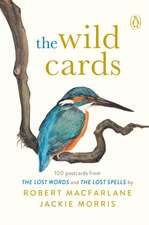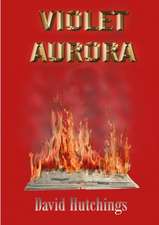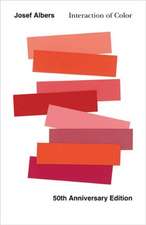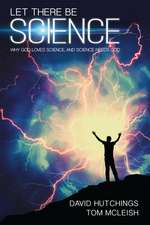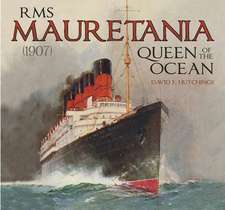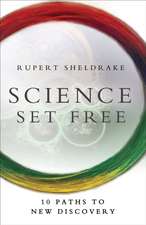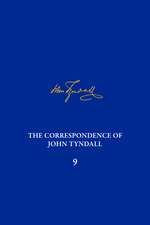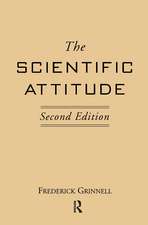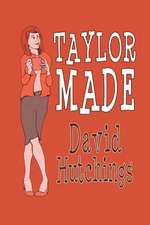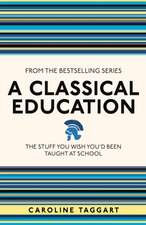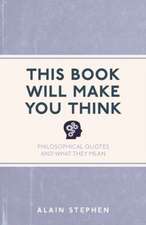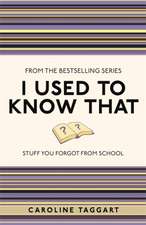Of Popes and Unicorns: Science, Christianity, and How the Conflict Thesis Fooled the World
Autor David Hutchings, James C. Ungureanuen Limba Engleză Hardback – 30 dec 2021
Preț: 350.33 lei
Nou
Puncte Express: 525
Preț estimativ în valută:
67.04€ • 69.74$ • 55.35£
67.04€ • 69.74$ • 55.35£
Carte disponibilă
Livrare economică 24 martie-07 aprilie
Preluare comenzi: 021 569.72.76
Specificații
ISBN-13: 9780190053093
ISBN-10: 0190053097
Pagini: 280
Ilustrații: 11 images
Dimensiuni: 162 x 237 x 25 mm
Greutate: 0.54 kg
Editura: Oxford University Press
Colecția OUP USA
Locul publicării:New York, United States
ISBN-10: 0190053097
Pagini: 280
Ilustrații: 11 images
Dimensiuni: 162 x 237 x 25 mm
Greutate: 0.54 kg
Editura: Oxford University Press
Colecția OUP USA
Locul publicării:New York, United States
Recenzii
The book is an important contribution to the study of the warfare thesis. This book is a comprehensive story, and not discrete chapters. As a result, its content will likely be utilized in many different contexts and read for many years to come.
In Of Popes and Unicorns David Hutching and James Ungureanu give us brief biographies of Draper and White before diving into their books to test their assertions. They do a thorough, readable, and at times very witty, job of dismantling the conflict thesis, showing that many of Draper and White's historical arguments are not just muddle headed or over-simplifications but rather are based on falsehoods and evidence that simply isn't there. The 'conflict thesis' has long been discarded as inadequate scholarship. In some historical instances it is just plain false, in others it does not do justice to the complexity of the history involved. This is all well known among academic historians of science, but David Hutchings and James Ungureanu have done a very good job of making the facts page-turningly-accessible to a wider audience.
The book's engaging tone and adept use of anecdote and metaphor recommends it for a popular audience.
The real strength of this book is in its accessibility. It's a fun read and written in a fairly light-hearted and even conversational style, punctuated by quirky historical episodes and interesting analogies. I had never heard of the fictional (and then, oddly, non-fictional) hamlet of Agloe, New York, but the authors tell the strange story of an invented town that then came - to - be, before putting it to use to illustrate a point. There are also enough topical references and jokes to make what could be a dull exposition on historiography a lively tour of science through history.
Enjoyable and light-hearted ... an extremely useful jumping-off point for further reading.
Extremely informative and highly entertaining. The authors have not only dispelled the myths that support the conflict thesis, theyve also explained where those myths came from and how they became so pervasive.
Our understanding of history and what it passes down to us, at least from our frame of reference, is vested in our cultural context and the voices of those who reinforce it. The book sets to challenge this—or perhaps, one might say, to set the record straight. As its authors lift the lid on the historical narrative of the relationship between science and the church, they tell a story of those who have influenced this and laid out a conflict between the two—a conflict which Hutchings and Ungureanu argue is false. Science and faith, they show, can sit more comfortably together in our collective search for truth than one might first think, and we are much worse off when they do not. Itâs important that we look back and reflect from time to time; Of Popes and Unicorns helps us do this in a thought-provoking way. But, above all, it's simply a good, enjoyable read.
In this robust critique, Hutchings and Ungureanu provide many fascinating insights into the historical roots of the idea that there is some intrinsic conflict between science and religion. What is truly startling is the way that this false narrative continues to permeate popular culture. In an engaging style, the book demonstrates that fake news is nothing new and shows how the creative conspiracy theories of the 19th century continue to exert their long tentacles into present-day thinking.
This is a gripping, powerful, and vital story of the most successful and damaging conspiracy theory ever conceived. The sleuthing of Hutchings and Ungureanu is as engaging as the best detective writing and as meticulously researched. This is a book that every teacher, scientist, historian, and pastor needs to read. And, students: I wish I had this given to me when I was 14. Read it now. It really matters.
In this highly entertaining account of one of the greatest intellectual deceptions ever inflicted upon the public, Hutchings and Ungureanu describe the main characters (with all their attendant eccentricities) who created and/or promulgated the conflict thesis. Despite the best efforts of historians of science to overturn it, this conflict remains stubbornly embedded in our collective consciousness, harming both religion and science. I can only hope that this book is widely read and that it plays its part in undoing that damage.
The book's engaging tone and adept use of anecdote and metaphor recommends it for a popular audience. It contains the appropriate level of detail- Draper and White are presented in a nuanced way without defaulting to the strawman argumentation with which these figures have so often been charged....ideally this book would be read by scientists or general readers who have accepted the conflict thesis as a matter of fact.
In Of Popes and Unicorns David Hutching and James Ungureanu give us brief biographies of Draper and White before diving into their books to test their assertions. They do a thorough, readable, and at times very witty, job of dismantling the conflict thesis, showing that many of Draper and White's historical arguments are not just muddle headed or over-simplifications but rather are based on falsehoods and evidence that simply isn't there. The 'conflict thesis' has long been discarded as inadequate scholarship. In some historical instances it is just plain false, in others it does not do justice to the complexity of the history involved. This is all well known among academic historians of science, but David Hutchings and James Ungureanu have done a very good job of making the facts page-turningly-accessible to a wider audience.
The book's engaging tone and adept use of anecdote and metaphor recommends it for a popular audience.
The real strength of this book is in its accessibility. It's a fun read and written in a fairly light-hearted and even conversational style, punctuated by quirky historical episodes and interesting analogies. I had never heard of the fictional (and then, oddly, non-fictional) hamlet of Agloe, New York, but the authors tell the strange story of an invented town that then came - to - be, before putting it to use to illustrate a point. There are also enough topical references and jokes to make what could be a dull exposition on historiography a lively tour of science through history.
Enjoyable and light-hearted ... an extremely useful jumping-off point for further reading.
Extremely informative and highly entertaining. The authors have not only dispelled the myths that support the conflict thesis, theyve also explained where those myths came from and how they became so pervasive.
Our understanding of history and what it passes down to us, at least from our frame of reference, is vested in our cultural context and the voices of those who reinforce it. The book sets to challenge this—or perhaps, one might say, to set the record straight. As its authors lift the lid on the historical narrative of the relationship between science and the church, they tell a story of those who have influenced this and laid out a conflict between the two—a conflict which Hutchings and Ungureanu argue is false. Science and faith, they show, can sit more comfortably together in our collective search for truth than one might first think, and we are much worse off when they do not. Itâs important that we look back and reflect from time to time; Of Popes and Unicorns helps us do this in a thought-provoking way. But, above all, it's simply a good, enjoyable read.
In this robust critique, Hutchings and Ungureanu provide many fascinating insights into the historical roots of the idea that there is some intrinsic conflict between science and religion. What is truly startling is the way that this false narrative continues to permeate popular culture. In an engaging style, the book demonstrates that fake news is nothing new and shows how the creative conspiracy theories of the 19th century continue to exert their long tentacles into present-day thinking.
This is a gripping, powerful, and vital story of the most successful and damaging conspiracy theory ever conceived. The sleuthing of Hutchings and Ungureanu is as engaging as the best detective writing and as meticulously researched. This is a book that every teacher, scientist, historian, and pastor needs to read. And, students: I wish I had this given to me when I was 14. Read it now. It really matters.
In this highly entertaining account of one of the greatest intellectual deceptions ever inflicted upon the public, Hutchings and Ungureanu describe the main characters (with all their attendant eccentricities) who created and/or promulgated the conflict thesis. Despite the best efforts of historians of science to overturn it, this conflict remains stubbornly embedded in our collective consciousness, harming both religion and science. I can only hope that this book is widely read and that it plays its part in undoing that damage.
The book's engaging tone and adept use of anecdote and metaphor recommends it for a popular audience. It contains the appropriate level of detail- Draper and White are presented in a nuanced way without defaulting to the strawman argumentation with which these figures have so often been charged....ideally this book would be read by scientists or general readers who have accepted the conflict thesis as a matter of fact.
Notă biografică
David Hutchings is Fellow of the Institute of Physics and a physics teacher at Pocklington School in England. He is the author of Let There Be Science (2017) and God, Stephen Hawking and the Multiverse (2020). Hutchings is a regular speaker on the philosophy, history, and theology of science across the United Kingdom.James C. Ungureanu is Fellow of the Historical Society in London and Upper School Humanities Teacher at The Stony Brook School. He is an intellectual historian primarily focused on the history of religious thought who teaches everything from biblical studies to the history of science and religion. Ungureanu is the author of Science, Religion, and the Protestant Tradition: Retracing the Origins of Conflict (2019).



